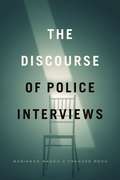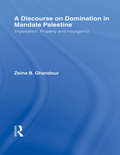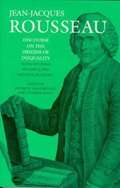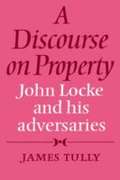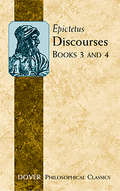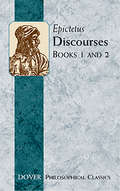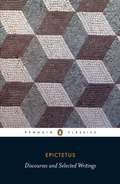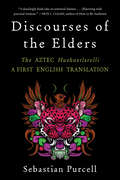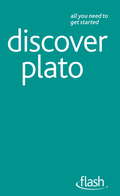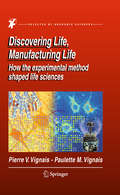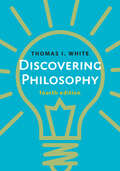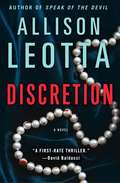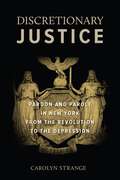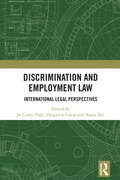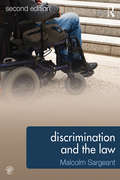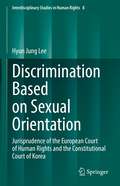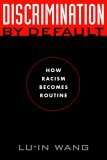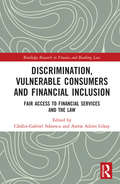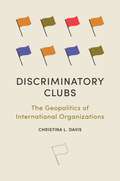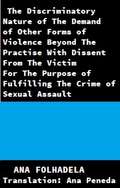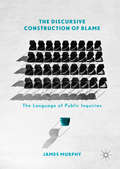- Table View
- List View
The Discourse of Police Interviews
by Marianne Mason Frances RockForensic linguistics, or the study of language and the law, is a growing field of scholarly and public interest with an established research presence. The Discourse of Police Interviews aims to further the discussion by analyzing how police interviews are constructed and used to investigate and prosecute crimes. The first book to focus exclusively on the discourses of police interviewing, The Discourse of Police Interviews examines leading debates, approaches, and topics in contemporary police interview research. Among other topics, the book explores the sociolegal, psychological, and discursive framework of popular police interview techniques employed in the United States and the United Kingdom, such as PEACE and Reid, and the discursive practices of institutional representatives like police officers and interpreters that can influence the construction and quality of linguistic evidence. Together, the contributions situate the police interview as part of a complex, and multistage, criminal justice process. The book will be of interest to both scholars and practitioners in a variety of fields, such as linguistic anthropology, interpreting studies, criminology, law, and sociology.
The Discourse of Police Interviews
by Marianne Mason Frances RockForensic linguistics, or the study of language and the law, is a growing field of scholarly and public interest with an established research presence. The Discourse of Police Interviews aims to further the discussion by analyzing how police interviews are constructed and used to investigate and prosecute crimes. The first book to focus exclusively on the discourses of police interviewing, The Discourse of Police Interviews examines leading debates, approaches, and topics in contemporary police interview research. Among other topics, the book explores the sociolegal, psychological, and discursive framework of popular police interview techniques employed in the United States and the United Kingdom, such as PEACE and Reid, and the discursive practices of institutional representatives like police officers and interpreters that can influence the construction and quality of linguistic evidence. Together, the contributions situate the police interview as part of a complex, and multistage, criminal justice process. The book will be of interest to both scholars and practitioners in a variety of fields, such as linguistic anthropology, interpreting studies, criminology, law, and sociology.
The Discourse of Police Interviews
by Marianne Mason Frances RockForensic linguistics, or the study of language and the law, is a growing field of scholarly and public interest with an established research presence. The Discourse of Police Interviews aims to further the discussion by analyzing how police interviews are constructed and used to investigate and prosecute crimes. The first book to focus exclusively on the discourses of police interviewing, The Discourse of Police Interviews examines leading debates, approaches, and topics in contemporary police interview research. Among other topics, the book explores the sociolegal, psychological, and discursive framework of popular police interview techniques employed in the United States and the United Kingdom, such as PEACE and Reid, and the discursive practices of institutional representatives like police officers and interpreters that can influence the construction and quality of linguistic evidence. Together, the contributions situate the police interview as part of a complex, and multistage, criminal justice process. The book will be of interest to both scholars and practitioners in a variety of fields, such as linguistic anthropology, interpreting studies, criminology, law, and sociology.
A Discourse on Domination in Mandate Palestine: Imperialism, Property and Insurgency
by Zeina B. GhandourBritish discourse during the Mandate, with its unremitting convergence on the problematic ‘native question’, and which rested on racial and cultural theories and presumptions, as well as on certain givens drawn from the British class system, has been taken for granted by historians. The validity of cultural representations as pronounced within official correspondence and colonial laws and regulations, as well as within the private papers of colonial officials, survives more or less intact. There are features of colonialism additional to economic and political power, which are glaring yet have escaped examination, which carried cultural weight and had cultural implications and which negatively transformed native society. This was inevitable. But what is less inevitable is the subsequent collusion of historians in this, a (neo-) colonial dynamic. The continued collusion of modern historians with racial and cultural notions concerning the rationale of European rule in Palestine has postcolonial implications. It drags these old notions into the present where their iniquitous barbarity continues to manifest. This study identifies the symbolism of British officials’ discourse and intertwines it with the symbolism and imagery of the natives’ own discourse (from oral interviews and private family papers). At all times, it remains allied to those writers, philosophers and chroniclers whose central preoccupation is to agitate and challenge authority. This, then, is a return to the old school, a revisiting of the optimistic, vibrant rhetoric of those radicals who continue to inspire post and anti-colonial thinking. In order to dismantle, and to undo and unwrite, A Discourse on Domination in Mandate Palestine holds a mirror up to the language of the Mandatory by counteracting it with its own integrally oppositional discourse and a provocative rhetoric.
Discourse On The Origin Of Inequality, Polemics, And Political Economy
by Jean-Jacques Rousseau Judith R. Bush Terence Marshall Christopher Kelly Roger D. MastersIncludes the Second Discourse (complete with the author’s extensive notes), contemporary critiques by Voltaire, Diderot, Bonnet, and LeRoy, Rousseau’s replies (some never before translated), and Political Economy, which first outlined principles that were to become famous in the Social Contract. This is the first time that the works of 1755 and 1756 have been combined with careful commentary to show the coherence of Rousseau’s “political system. ” The Second Discourse examines man in the true “state of nature,” prior to the formation of the first human societies, tracing the “hypothetical history” of political society and social inequality as they developed out of natural equality and independence.
A Discourse on Property: John Locke and his Adversaries
by James TullyJohn Locke's theory of property is perhaps the most distinctive and the most influential aspect of his political theory. In this book James Tully uses an hermeneutical and analytical approach to offer a revolutionary revision of early modern theories of property, focusing particularly on that of Locke.
Discourses: Books 3 and 4
by Epictetus P. E. MathesonIn this compilation of Books 3 and 4 of Epictetus' Discourses -- the second of a two-volume set -- the philosopher discusses the quest for freedom, the nature of solitude, cynicism, fear, discretion, the avoidance of quarrels, and other subjects of enduring interest and concern.
Discourses: Books 1 and 2
by Epictetus P. E. MathesonThe ne plus ultra of Stoicism, Discourses outline clear-cut principles of right conduct and true thinking, offering secular thinkers a mode of reasoning that dismisses the strictures of absolutism and emotionalism in exchange for a more peaceful and productive life. The Discourses report wide-ranging discussions between Epictetus and his students.
Discourses and Selected Writings
by Epictetus Robert Dobbin'I must die. But must I die bawling? 'Epictetus, a Greek stoic and freed slave, ran a thriving philosophy school in Nicropolis in the early second century AD. His animated discussions were celebrated for their rhetorical wizardry and were written down by Arrian, his most famous pupil. Together with the Enchiridion, a manual of his main ideas, and the fragments collected here, The Discourses argue that happiness lies in learning to perceive exactly what is in our power to change and what is not, and in embracing our fate to live in harmony with god and nature. In this personal, practical guide to the ethics of Stoicism and moral self-improvement, Epictetus tackles questions of freedom and imprisonment, illness and fear, family, friendship and love, and leaves an intriguing document of daily life in the classical world. In the introduction that accompanies this lively new translation, Robert Dobbin discusses Epitetus' life, his place in the Stoic tradition, his influence on world philosophies and his relevance in the modern day. This edition also includes a bibliography, notes and a glossary of names.
Discourses of the Elders: The Aztec Huehuetlatolli A First English Translation
by L. Sebastian Purcell“A dazzlingly fresh take on universal themes.… [B]ursting with practical wisdom.” —Skye C. Cleary, author of How to Be Authentic A philosophy grounded not in a transcendent divinity, afterlife, or individualism, but in a rooted communal life. Western philosophers have long claimed that God, if such a being exists, is a personal force capable of reason, and that the path to a good human life is also the path to a happy one. But what if these claims prove false, or at least deeply misleading? The Aztecs of central Mexico had a rich philosophical tradition, recorded in Latin script by Spanish clergymen and passed down for centuries in the native Nahuatl language—one of the earliest transcripts being the Huehuetlatolli, or Discourses of the Elders, compiled by Friar Andrés de Olmos circa 1535. Novel in its form, the Discourses consists of short conversations between elders and young people on how to achieve a meaningful and morally sound life. The Aztecs had a metaphysical tradition but no concept of “being.” They considered the mind an embodied force, present not just in the brain but throughout the body. Their core values relied on collective responsibility and group wisdom, not individual thought and action, orienting life around one’s actions in this realm rather than an afterlife, distinctly opposed to the Christian beliefs that permeate Europe and America. Sebastian Purcell’s fluency in his grandmother’s native Nahuatl brings to light the Aztec ethical landscape in brilliant clarity. Never before translated into English in its entirety, and one of the earliest post-contact texts ever recorded, Discourses of the Elders reflects the wisdom communicated by oral tradition and proves that philosophy can be active, communal, and grounded not in a “pursuit of happiness” but rather the pursuit of a meaningful life.
Discover Plato: Flash
by Roy JacksonThe books in this bite-sized new series contain no complicated techniques or tricky materials, making them ideal for the busy, the time-pressured or the merely curious. Discover Plato is a short, simple and to-the-point guide to the works of Plato. In just 96 pages, the reader will discover all his ideas, from the Theory of Forms to Platonic Love. Ideal for the busy, the time-pressured or the merely curious, Plato is a quick, no-effort way to break into this fascinating topic.
Discovering Life, Manufacturing Life
by Paulette M. Vignais Pierre V. VignaisThis book tells the story of how thinkers, over time, have dared to explore using experimental devices and how the experimental method established itself and took a predominant role in the life sciences. While life sciences continue to advance and knowledge becomes more widespread and accessible, philosophers now focus on problems of ethics particularly with respect to the reproductive functions that contemporary biology is able to manipulate and modify. Looking at the stunning progress made by scientific thought over the last five centuries we might ask ourselves what were the triggering factors that lead to the experimental method. How did this logical and objective approach to the exploration of various enigmas in nature arise and spread at a particular moment in time in the western world? Was there an influence from the social, religious or political context? Was the energy of a few individuals sufficient to initiate such a revolution? The authors of this book take us on journey of the mind, from the ancient roots of scientific rationality to today's irresistible trend in genetic manipulation, particularly focused on human beings. Inevitably this will lead the reader to view the way in which science is done today under a new light. A fascinating discussion, based on concrete examples and experiments, provides food for thought, not only with respect to the experimental method itself, but also regarding the organization of science as it exists today and how it is perceived.
Discovering Philosophy
by Prof. Thomas I. WhiteAre we free or determined? Are things really the way they appear to be? What&’s the difference between right and wrong? Can God&’s existence be demonstrated?Discovering Philosophy looks at these and other fundamental questions that have bedeviled thinkers for centuries. Designed for students who are more comfortable with secondary than primary sources, Discovering Philosophy is both accessible and intellectually challenging. While it examines the ideas of traditional philosophers, it also considers perspectives that have historically been underrepresented (feminist philosophers and Native American thought), draws examples from popular culture, and considers cutting-edge philosophical questions raised by scientific discoveries (are dolphins nonhuman persons with rights?).Each chapter includes discussion questions, boxed highlights, and suggestions for further reading.
Discretion: A Novel (Anna Curtis Series #2)
by Allison LeottaFor fans of Lisa Scottoline and Law and Order: SVU, former federal sex-crimes prosecutor Allison Leotta’s novel explores the intersection of sex and power as Anna Curtis investigates the murder of one of DC’s highest-paid escorts.When a beautiful young woman plummets to her death from the balcony of the U.S. Capitol, Assistant U.S. Attorney Anna Curtis is summoned to the scene. The evidence points to a sexual assault and murder. The victim is one of the city’s highest-paid escorts. And the balcony belongs to Washington, D.C.’s sole representative to Congress, the most powerful figure in city politics. The Congressman proclaims his innocence, but he’s in the middle of a tough primary fight, and the scandal could cost him the election. For Anna, the high-profile case is an opportunity. But as the political stakes rise, she realizes that a single mistake could end her career. At the same time, her budding romance with Jack Bailey, the chief homicide prosecutor, is at a crossroads. Determined to gain respect in the office, Anna wants to keep their relationship under wraps. But the mounting pressure and media attention that come with the office’s most important case will inevitably expose their relationship—if it doesn’t destroy it first. The investigation leads Anna to Discretion, a high-end escort service that caters to D.C.’s elite. But with each break in the case, the mystery deepens. And the further Anna ventures into D.C.’s red-light underworld, the larger the target on her own back. From the secret social clubs where Washington’s most powerful men escape from public view to the asphalt “track” where the city’s most vulnerable women work the streets, Discretion is a gripping exploration of sex, power, and the secrets we all keep.
Discretionary Justice: Pardon and Parole in New York from the Revolution to the Depression
by Carolyn StrangeThe pardon is an act of mercy, tied to the divine right of kings. Why did New York retain this mode of discretionary justice after the Revolution? And how did governors’ use of this prerogative change with the advent of the penitentiary and the introduction of parole? This book answers these questions by mining previously unexplored evidence held in official pardon registers, clemency files, prisoner aid association reports and parole records. This is the first book to analyze the histories of mercy and parole through the same lens, as related but distinct forms of discretionary decision-making. It draws on governors’ public papers and private correspondence to probe their approach to clemency, and it uses qualitative and quantitative methods to profile petitions for mercy, highlighting controversial cases that stirred public debate. Political pressure to render the use of discretion more certain and less personal grew stronger over the nineteenth century, peaking during constitutional conventionsand reaching its height in the Progressive Era. Yet, New York’s legislators left the power to pardon in the governor’s hands, where it remains today. Unlike previous works that portray parole as the successor to the pardon, this book shows that reliance upon and faith in discretion has proven remarkably resilient, even in the state that led the world toward penal modernity.
Discrimination and Employment Law: International Legal Perspectives
by Jo Carby-Hall Zbigniew Góral Aneta TycPresenting the issues of discrimination in employment in a multifaceted manner, this book examines the standards on anti-discrimination law for employment at international and EU levels and those deriving from national jurisdictions. Bringing together top scholars in the field of anti-discrimination employment law, this book explains the conceptual and theoretical foundations of the principle of non-discrimination in employment and assesses the most significant changes to law and ongoing challenges in the Netherlands, Poland, Germany, the UK, Australia, New Zealand, Canada, India, Switzerland and Israel. Identifying emerging trends in anti-discrimination employment law, this book offers a comparative, problem-solving approach and an in-depth analysis of new developments in both anti-discrimination statutory law and case law. Addressing employment law with a focus on anti-discrimination law and human rights law, this book will be essential reading for students, academics and practitioners working in the fields of labour and employment law, anti-discrimination law and human rights law and offers an international comparative overview of the most up-to-date issues relating to discrimination.
Discrimination and the Law 2e (Studies In Employment And Social Policy #Vol. 34)
by Malcolm SargeantDiscrimination and the Law provides an exploration and evaluation of discrimination law, focusing primarily on discrimination in employment. Introducing readers to the concepts of equality and the historical origins of discrimination law, Malcolm Sargeant explores the wider political, social and economic contexts through which discrimination law has evolved. The second edition has been thoroughly updated and includes a new chapter considering discrimination against trade unionists, discrimination against ‘non-standard’ workers as well as the public sector equality duty. The book begins with an examination of what is meant by such concepts as equality and discrimination followed by an analysis of the Equality Act 2010 and the impact of EU and international law. All the protected characteristics contained in the Equality Act 2010 are critically considered (age, disability, gender reassignment, marriage and civil partnership, pregnancy and maternity, race, religion or belief, sex, sexual orientation). Issues not covered by the legislation such as those relating to multiple discrimination and caste discrimination are also analysed. Important cases from the UK courts as well as international courts are considered. The book also contains an appendix with the most relevant parts of the 2010 Act. Important cases are highlighted in the text and some reflections as the basis for further discussion are included at the end of each chapter. This is an essential introduction to the wide-ranging law relating to discrimination in the UK for law, HRM and business students.
Discrimination Based on Sexual Orientation: Jurisprudence of the European Court of Human Rights and the Constitutional Court of Korea (Interdisciplinary Studies in Human Rights #8)
by Hyun Jung LeeThe book discusses discrimination based on sexual orientation in the jurisprudence of the European Court of Human Rights (ECtHR) and the Constitutional Court of Korea. The work provides insights into how prohibition on discrimination based on sexual orientation can be realized in South Korea with the reference of the case law of other jurisdictions including mainly from the ECtHR. The book reviews related principles and methodological tools applied in the jurisprudence of the ECtHR. Considering that the rights of sexual minorities are evolving in many jurisdictions including Europe, and this problem is currently of great importance in the constitutional and political discussion, the topic is important to the readers in Europe as well as in Korea.
Discrimination by Default: How Racism Becomes Routine (Critical America #9)
by Lu-in WangMuch as we “select” computer settings by default—reflexively, without thinking, and sometimes without realizing there are other options—we often discriminate by default as well. And just as default computer settings tend to become locked in or entrenched as the standard, discrimination by default creates a situation in which disparate outcomes are expected, accepted, and taken for granted. The killing of Amadou Diallo, racial disparities in medical care, the dominance of Whites and men in certain professions, and even the uneven media attention paid to crimes depending on their victims’ race and class, all might be cases of discrimination by, or as, default.Wang contends that, today, most discrimination occurs by default and not design, making legal prohibitions that focus on those who discriminate out of ill will inadequate to redress the largest share of modern discrimination. She draws on social psychology to detail three ways in which unconscious assumptions can lead to discrimination, showing how they play out in a range of everyday settings. Wang then demonstrates how these dynamics interact in medical care to produce an invisible, self-fulfilling, and self-perpetuating prophecy of racial disparity. She goes on to suggest ways in which institutions and individuals might recognize, interrupt, and override the discriminatory default.
Discrimination, Copyright and Equality (Cambridge Disability Law and Policy Series)
by Paul HarpurWhile equality laws operate to enable access to information, these laws have limited power over the overriding impact of market forces and copyright laws that focus on restricting access to information. Technology now creates opportunities for everyone in the world, regardless of their abilities or disabilities, to be able to access the written word – yet the print disabled are denied reading equality, and have their access to information limited by laws protecting the mainstream use and consumption of information. The Convention on the Rights of Persons with Disabilities and the World Intellectual Property Organization's Marrakesh Treaty have swept in a new legal paradigm. This book contributes to disability rights scholarship, and builds on ideas of digital equality and rights to access in its analysis of domestic disability anti-discrimination, civil rights, human rights, constitutional rights, copyright and other equality measures that promote and hinder reading equality. A valuable resource for advocates, law makers, librarians and others who seek to reform laws, policies and practices that reduce reading equality Provides a comparative analysis of how copyright and anti-discrimination laws interact Provides an in-depth analysis of advances in international and domestic laws
Discrimination Laundering
by Green Tristin K.While discrimination in the workplace is often perceived to be undertaken at the hands of individual or 'rogue' employees acting against the better interest of their employers, the truth is often the opposite: organizations are inciting discrimination through the work environments that they create. Worse, the law increasingly ignores this reality and exacerbates the problem. In this groundbreaking book, Tristin K. Green describes the process of discrimination laundering, showing how judges are changing the law to protect employers, and why. By bringing organizations back into the discussion of discrimination, with real-world stories and extensive social-science research, Green shows how organizational and legal efforts to minimize discrimination - usually by policing individuals over broader organizational change - are taking us in the wrong direction, and how the law could do better, by creating incentives for organizational efforts that are likely to minimize discrimination, instead of inciting it.
Discrimination, Vulnerable Consumers and Financial Inclusion: Fair Access to Financial Services and the Law (Routledge Research in Finance and Banking Law)
by Cătălin-Gabriel Stănescu Asress Adimi GikayThis book addresses the questions of discrimination, vulnerable consumers, and financial inclusion in the light of the emerging legal, socioeconomic, and technological challenges. New technologies – such as artificial intelligence-driven consumer credit risk assessment and Fintech platforms, the changing nature of vulnerability due to the ongoing COVID-19 pandemic, as well as the sophistication of digital technologies, which help circumvent legal barriers and protections – necessitate the continuous study of the existing legal frameworks and measures that are capable of tackling these challenges. Organized in two major parts, the first addresses, from multiple national angles, the idea of a human rights approach to consumer law, in order to replace the mantra of economic efficiency that characterizes financial services with those of human dignity and freedom from discrimination and from debt-induced servitude. The second tackles the challenges posed by increased usage of technology in connection with financial services, which tends to solve, but also creates, additional issues for consumers in general, and for vulnerable groups in particular.
Discriminatory Clubs: The Geopolitics of International Organizations
by Christina L. DavisThe discriminatory logic at the heart of multilateralismMember selection is one of the defining elements of social organization, imposing categories on who we are and what we do. Discriminatory Clubs shows how international organizations are like social clubs, ones in which institutional rules and informal practices enable states to favor friends while excluding rivals.Where race or socioeconomic status may be a basis for discrimination by social clubs, geopolitical alignment determines who gets into the room to make the rules of global governance. Christina Davis brings together a wealth of data on membership provisions for more than three hundred organizations to reveal the prevalence of club-style selection on the world stage. States join organizations to deepen their association with a particular group of states—most often their allies—and for the gains from policy coordination. Even organizations that claim to be universal, to target narrow issues, or to cover geographic regions use club-style admission criteria. Davis demonstrates that when it comes to the most important decision of cooperation—who belongs to the club and who doesn’t—geopolitical alignment can matter more than the merits or policies of potential members.With illuminating case studies ranging from nineteenth-century Japan to contemporary Palestine and Taiwan, Discriminatory Clubs sheds light on how, for global and regional organizations such as the WTO and the EU, alliance ties and shared foreign-policy positions form the basis of cooperation.
The Discriminatory Nature of The Demand of Other Forms of Violence Beyond The Practise With Dissent: From The Victim For The Purpose of Fulfilling The Crime of Sexual Assault
by Ana FolhadelaMultidisciplinary work on sexual assault. Winner of «Teresa Rosmaninho Human Rights Award, Women’s Right» /2nd Edition/2014
The Discursive Construction of Blame: The Language of Public Inquiries
by James MurphyThis book examines the language of public inquiries to reveal how blame is assigned, avoided, negotiated and discussed in this quasi-legal setting. In doing so, the author adds a much-needed linguistic perspective to the study of blame – previously the reserve of moral philosophers, sociologists and psychologists – at a time when public inquiries are being convened with increasing frequency. While the stated purpose of a public inquiry is rarely to apportion blame, this work reveals how blame is nevertheless woven into the fabric of the activity and how it is constructed by the language of the participants. Its chapters systematically analyse the establishment of inquiries, their questioning patterns, how blame can be avoided by witnesses, how blame is assigned or not by an inquiry’s panel and how such blame may result in public apologies. The author concludes with an engaging discussion on the value of public inquiries in civic life and suggestions for changes to the processes of public inquiries. This book will appeal to readers with a general interest in public and political language; in addition to scholars across the disciplines of communication, media studies, politics, sociology, social policy, philosophy, psychology, linguistics, rhetoric, public relations and public affairs.
